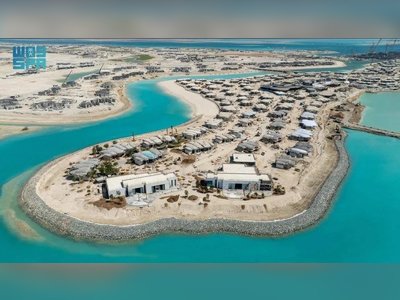
To dredge or not to dredge, that is the question
I respect our leaders, expect that they have our country’s best interest at heart and they love everyone, just as I do. I have no ill will toward them nor those who have bought into their plan, though I think it flawed.
Government discusses success rates of relocating corals as if that is our concern instead of avoiding the near total loss of well over 45 acres of the harbour’s unique and highly valuable reefs. The harbour will die. It’s like saying “yes, we’re going to cut off your head, but we’ll find a recipient for your eyes”.
No, suh! Our real concern is permanently losing the habitat and direct economic value of the unique coral reef systems which lie in harm’s way.
Government talks about corals as if we should be happy salvaging some living tissue for bio-diversity, while destroying the habitat those corals took thousands of years building, and which currently earn as much for our economy as the projected net government gains of the plan. The average citizen might not know the difference between corals and reefs when reading government’s statements. Are they conflating the issue? I wish to set the record straight on what we stand to lose in the harbour and its enormous economic value.
Preserving bio-diversity in no way equates to relocating coral reefs, which are deeply three-dimensional structures. The relocation plan leaves behind massive, Swiss cheese-like occupied “cities” beneath the veneer of living corals being moved, most significant of which is the 20-foot high, 200-foot long Balboa reef. This is like claiming to “relocate” the Ritz-Carlton by moving the landscaping, fixtures and fittings, but not the occupied building itself.
The all-important function of housing along with all of the inhabitants is lost. Relocation from the 27-acre dredge site also does nothing to save 30+ acres of reef directly outside the dredge pit at Eden Rock, Soto’s South and the wreck of the Cali tourism attractions.
You’re missing the magnitude of the loss. According to the environmental impact assessment (EIA), those sites will certainly be killed by silt at least 200m beyond the pit, even if all known mitigations are employed effectively. All that the best mitigations can do is limit how far beyond 200m the death will reach, which is far from guaranteed. Those sites will remain dead and obscured in murk once the dock is operational. This experience has preceded us throughout the Caribbean, which is why visitors exclaim how lovely it is to see one of the last clear water ports.
Government correctly does not claim that their optimistic 70% success rate in relocating some live corals from the reef surface within the dredge pit is remotely the same as 70% salvation of the entire reef we’ll lose and the goods and services it provides us, yet that is clearly the mistaken take-away they hope you’ll make for yourself.
To be clear, it saves close to 0% of the reef’s current value. Remember in 2015 when proponents claimed “it’s already dead and there’s nothing there”? We knew at that time that the percentage of live-hard-coral cover on the harbour’s unique reefs is at least equal to the rest of the island. The EIA confirmed 21% live coral in the harbour compared to 20% island-wide. What else are they misrepresenting?
Perhaps the most resonant test is seen in comparing the tremendous economic value of what will be permanently lost vs what appear to be comparatively poor short-term gains with the project. The EIA states these reefs provide annual economic gains through “goods and services” of $23M to $26M/year. The amended 2015 PWC economic assessment, which went unseen by most of the public, assumed only a small percentage of the reef’s value would be lost.
Direct ticket sales alone to activities on these reefs is nearly $9M/year, largely from cruise shippers who can walk to them from the landing. Additionally, goods and services provided by these reefs have tremendous growth potential if we allow fish to repopulate. We need only to stop taking more fish than the reef produces to see spectacular gains. It’s like we own Sea World but without the overhead. We should take advantage of this gift, not squander it.
The economics of permanently losing these reefs is the issue I most want to find included in a new economic assessment, made available for discussion, before the referendum is voted on. A plan without extensive dredging is the solution environmentalists seek, not euphemistic mitigations that still leave massive loss. A single pier for two mega-ships could be done without dredging and would leave the harbour clear during operations.
No, suh! Our real concern is permanently losing the habitat and direct economic value of the unique coral reef systems which lie in harm’s way.
Government talks about corals as if we should be happy salvaging some living tissue for bio-diversity, while destroying the habitat those corals took thousands of years building, and which currently earn as much for our economy as the projected net government gains of the plan. The average citizen might not know the difference between corals and reefs when reading government’s statements. Are they conflating the issue? I wish to set the record straight on what we stand to lose in the harbour and its enormous economic value.
Preserving bio-diversity in no way equates to relocating coral reefs, which are deeply three-dimensional structures. The relocation plan leaves behind massive, Swiss cheese-like occupied “cities” beneath the veneer of living corals being moved, most significant of which is the 20-foot high, 200-foot long Balboa reef. This is like claiming to “relocate” the Ritz-Carlton by moving the landscaping, fixtures and fittings, but not the occupied building itself.
The all-important function of housing along with all of the inhabitants is lost. Relocation from the 27-acre dredge site also does nothing to save 30+ acres of reef directly outside the dredge pit at Eden Rock, Soto’s South and the wreck of the Cali tourism attractions.
You’re missing the magnitude of the loss. According to the environmental impact assessment (EIA), those sites will certainly be killed by silt at least 200m beyond the pit, even if all known mitigations are employed effectively. All that the best mitigations can do is limit how far beyond 200m the death will reach, which is far from guaranteed. Those sites will remain dead and obscured in murk once the dock is operational. This experience has preceded us throughout the Caribbean, which is why visitors exclaim how lovely it is to see one of the last clear water ports.
Government correctly does not claim that their optimistic 70% success rate in relocating some live corals from the reef surface within the dredge pit is remotely the same as 70% salvation of the entire reef we’ll lose and the goods and services it provides us, yet that is clearly the mistaken take-away they hope you’ll make for yourself.
To be clear, it saves close to 0% of the reef’s current value. Remember in 2015 when proponents claimed “it’s already dead and there’s nothing there”? We knew at that time that the percentage of live-hard-coral cover on the harbour’s unique reefs is at least equal to the rest of the island. The EIA confirmed 21% live coral in the harbour compared to 20% island-wide. What else are they misrepresenting?
Perhaps the most resonant test is seen in comparing the tremendous economic value of what will be permanently lost vs what appear to be comparatively poor short-term gains with the project. The EIA states these reefs provide annual economic gains through “goods and services” of $23M to $26M/year. The amended 2015 PWC economic assessment, which went unseen by most of the public, assumed only a small percentage of the reef’s value would be lost.
Direct ticket sales alone to activities on these reefs is nearly $9M/year, largely from cruise shippers who can walk to them from the landing. Additionally, goods and services provided by these reefs have tremendous growth potential if we allow fish to repopulate. We need only to stop taking more fish than the reef produces to see spectacular gains. It’s like we own Sea World but without the overhead. We should take advantage of this gift, not squander it.
The economics of permanently losing these reefs is the issue I most want to find included in a new economic assessment, made available for discussion, before the referendum is voted on. A plan without extensive dredging is the solution environmentalists seek, not euphemistic mitigations that still leave massive loss. A single pier for two mega-ships could be done without dredging and would leave the harbour clear during operations.


